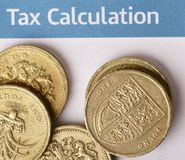Introduction
The tax on dividend in the United Kingdom is an essential aspect of the country’s taxation system. It plays a significant role in governing how dividends received by individuals and businesses are taxed. Whether you are an investor, a shareholder, or a company director, understanding the implications and regulations of the tax on dividend is crucial. This article delves into the intricacies of the UK’s tax on dividend, shedding light on its impact and providing clarity on the associated regulations.
How Does the Tax on Dividend Work in the UK?
The tax on dividend in the UK follows a specific set of rules and regulations. Here’s a breakdown of how it works
1. Dividend Allowance
- The first £2,000 of dividend income is tax-free for individuals.
- This allowance applies to both basic rate and higher rate taxpayers.
- Additional rate taxpayers are not entitled to this tax-free allowance.
2. Tax Bands and Rates
- Once the dividend allowance is exhausted, the tax bands determine the applicable tax rates.
- Basic rate taxpayers pay 7.5% on dividend income above the £2,000 allowance but below the higher rate threshold.
- Higher rate taxpayers pay 32.5% on dividend income that falls within the higher rate band.
- Additional rate taxpayers are subject to a 38.1% tax rate on dividend income within the additional rate band.
3. Tax Payment and Reporting
- Dividend tax is typically not deducted at the source.
- Self-assessment is required for individuals, while companies must report dividends in their corporation tax returns.
- Tax owed on dividends is payable by January 31 following the end of the tax year.
How Does the Tax on Dividend Affect Investors and Shareholders?
The tax on dividend has implications for investors and shareholders in the UK. Here’s what you need to know:
1. Impact on Individual Investors
- Individuals receiving dividend income must consider the tax implications.
- The tax bands and rates determine the amount of tax payable on dividend income.
- Utilizing tax allowances and planning can help optimize tax efficiency.
2. Impact on Shareholders and Directors
- Shareholders and directors must understand the tax implications of dividend payments from companies.
- Decisions regarding the timing and amount of dividends can affect tax liabilities.
- Seeking professional advice is essential to ensure compliance and optimize tax planning.
What Are the Regulations Surrounding the Tax on Dividend in the UK?
Understanding the regulations governing the tax on dividend in the UK is crucial for individuals and businesses. Here are key regulations to be aware of:
1. Reporting and Compliance
- Individuals must report dividend income on their self-assessment tax returns.
- Companies must include dividend payments in their corporation tax returns.
- Accurate record-keeping is necessary to meet compliance requirements.
2. Anti-Avoidance Measures
- The UK government has implemented anti-avoidance measures to prevent tax evasion through dividend payments.
- Transactions that aim to exploit tax loopholes may be subject to scrutiny and potential penalties.
Frequently Asked Questions (FAQs) about tax on dividend uk.
Q1: Are dividends taxable in the UK?
A1: Yes, dividends are taxable in the UK. The tax on dividend applies to individuals and companies.
Q2: Can I reduce my dividend tax liability?
A2: There are legal ways to reduce your dividend tax liability, such as utilizing tax allowances and planning strategies. Seeking professional advice is recommended.
Q3: How often do I need to report dividend income?
A3: Individuals must report dividend income on their self-assessment tax returns annually, while companies report dividends in their corporation tax returns.
Conclusion
Understanding the implications and regulations surrounding the tax on dividend in the UK is essential for individuals, investors, and businesses alike. By comprehending the tax bands, rates, and reporting requirements, you can navigate the tax system more effectively. Seeking professional advice and staying updated with the latest tax regulations will ensure compliance and help optimize your tax planning strategies. Remember, staying informed about the tax on dividend UK will empower you to make informed financial decisions.







